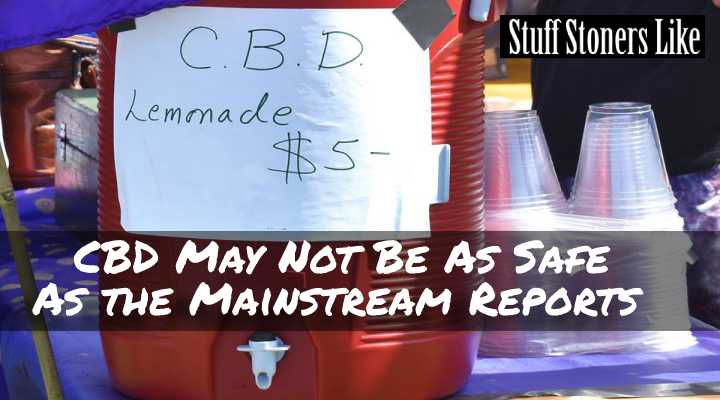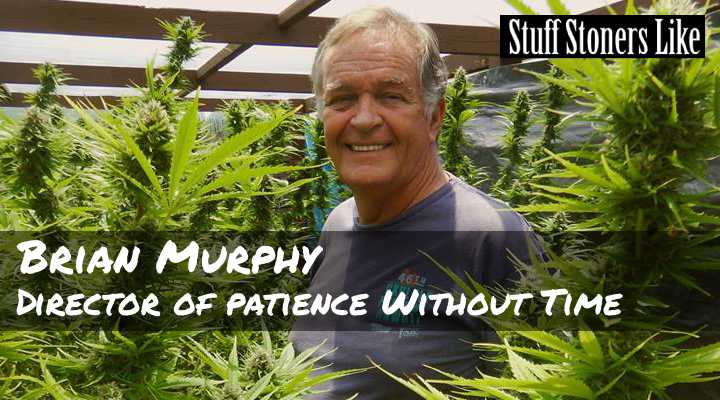 CBD is skyrocketing. Now that hemp’s federally legal and CBD can be derived from it you’re starting to see CBD everywhere and in everything—creams, lotions, coffees, smoothies, bruschetta, bacon, candy, coconut oil, popcorn, bath bombs—even suppositories. Not surprisingly just today Bloomberg ran with the salacious headline, There Are Now CBD Products for Every Part of Your Body. CBD’s not just touted as the rising wonder drug that a new marijuana user can eat, smear on their face or shove up their ass it’s also being descried as a new major money-maker. Why just today the Boston Globe reports that Businesses Envision a Boom in CBD and the latest Eaze Cannabis Report calls CBD the breakout “darling” of 2018 after learning that CBD consumers nearly doubled in 2018 from 2.6% to 4.8%. Sure it’s flying of shelves right now but is isolated CBD really safe?
CBD is skyrocketing. Now that hemp’s federally legal and CBD can be derived from it you’re starting to see CBD everywhere and in everything—creams, lotions, coffees, smoothies, bruschetta, bacon, candy, coconut oil, popcorn, bath bombs—even suppositories. Not surprisingly just today Bloomberg ran with the salacious headline, There Are Now CBD Products for Every Part of Your Body. CBD’s not just touted as the rising wonder drug that a new marijuana user can eat, smear on their face or shove up their ass it’s also being descried as a new major money-maker. Why just today the Boston Globe reports that Businesses Envision a Boom in CBD and the latest Eaze Cannabis Report calls CBD the breakout “darling” of 2018 after learning that CBD consumers nearly doubled in 2018 from 2.6% to 4.8%. Sure it’s flying of shelves right now but is isolated CBD really safe?
Make no mistake. Marijuana’s not meant to be reduced. Whole-plant medicine works just fine. However when western medicine seems to get its greedy hands on materials like marijuana it always has to chop it up into little bits—in the name of science. They then determine what each of those little bits do to the body or the mind. And next they try and synthesize those little bits into some sort of new revenue streams. Why? Because big pharma can’t patent a plant.
One of those little lucrative bits of reduced cannabis is CBD or cannabidiol. It’s the stuff in weed that counteracts the high caused by THC. It’s one of many cannabinoids found in cannabis and because of recent legislation changes to hemp laws it’s more widely available now than ever. Most of it comes from hemp which typically contains much more contaminants than marijuana because it’s not regulated as such. And it seems as if the mainstream media and weed noobs have completely overlooked findings that suggests the now ubiquitous over-the-counter material could possess harmful side effects.
Just about everyone (including the mainstream media and weed noobs) knows that marijuana is often used to treat glaucoma, right? What they don’t know is that an Indiana University study published in the journal Investigative Ophthalmology & Visual Science last year found that CBD appears to make glaucoma worse. Consuming it causes a rise in pressure inside the eye. Yes. You read that right—CBD could worsen glaucoma.
“This study raises important questions about the relationship between the primary ingredients in cannabis and their effect on the eye,” Alex Straiker an associate scientist in the IU Bloomington College of Arts and Sciences’ Department of Psychological and Brain Sciences who led the study, told Science Daily. “It also suggests the need to understand more about the potential undesirable side effects of CBD, especially due to its use in children.”
 CBD use could also lead to undesirable side effects in adults too. Brain Murphy, the Director of Patience Without Time who has been on the front lines of marijuana activism for the past 30 years, warns about negative drug interactions with using isolated CBD. Murphy says that he has personal experience with drugs like steroids, anesthetics, antiepileptics, beta-blockers and nonsteroidal anti-inflammatory drugs (NSAIDs)—all known to be interfered with when using high levels of isolated CBD, or any other isolated cannabinoid, he says.
CBD use could also lead to undesirable side effects in adults too. Brain Murphy, the Director of Patience Without Time who has been on the front lines of marijuana activism for the past 30 years, warns about negative drug interactions with using isolated CBD. Murphy says that he has personal experience with drugs like steroids, anesthetics, antiepileptics, beta-blockers and nonsteroidal anti-inflammatory drugs (NSAIDs)—all known to be interfered with when using high levels of isolated CBD, or any other isolated cannabinoid, he says.
“I wish everyone would take a step back and understand that when it comes to the medical and health values of cannabis—it’s all about the Entourage Effect,” Murphy says. “You cannot just pull out things like CBD and get the true medical and health benefits of cannabis. What you end up doing is creating a product that is guaranteed not to work and can actually do damage.”
CBD consumers claim that their products help them with anxiety, pain, insomnia, inflammation, skin conditions and other health concerns. And so do a litany of CBD marketers and manufactures, of course. Nowadays they’ve lined grocery and drug stores shelves with alleged curative CBD-laced tinctures, balms, facial serum, roll-on pain gels. There are even lines of CBD tinctures to treat pets—all without much proof that CBD works as advertised. What’s worse? Unlike weed CBD is being produced without any regulation. This results in products that vary widely in quality, says Marcel Bonn-Miller, an adjunct assistant professor of psychology in psychiatry at the University of Pennsylvania School of Medicine.
“If you’re looking for the ability to achieve beneficial results you have to stop looking at everything from a marketing standpoint first,” says Murphy. “Make sure to look at the whole plant as medicine and don’t be fooled by some clowns who have found a quasi legal way to market a new snake oil.”
Leave a Reply